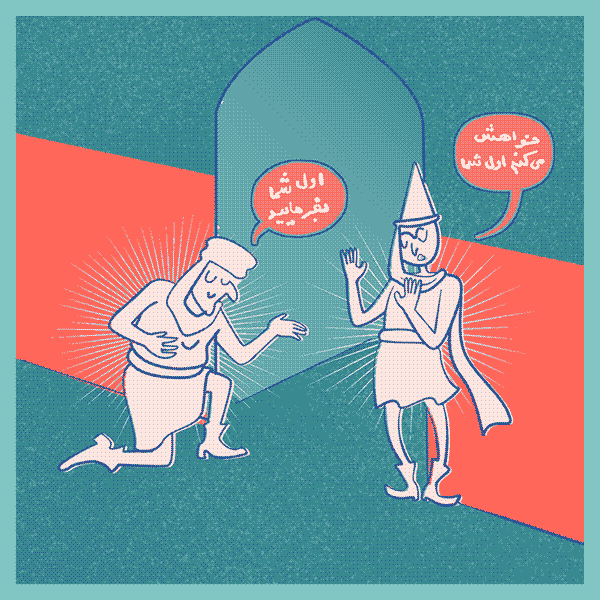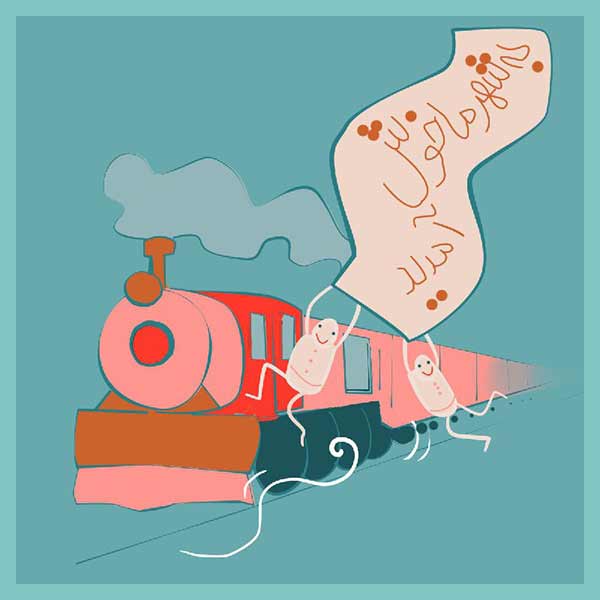Numbers in Persian Proverbs

اعداد
(C1 مُناسب برایِ فارسی آموزانِ سَطح)
در جهانِ امروز، اَعداد در همهی جَنبههای زندگیِ ما حُضور دارند. شاید در طیِ روز چندین بار از اَعداد و اَرقام استفاده کنیم. اما هزارهها قبل، وقتی که اَجدادِ ما شِمُردَن از یک تا پنج و ده را اِختِراع میکردند، نمیتوانستند تَصَوُر کنند که روزی جهان بدون ریاضیات بیمَعنی باشد. اَعداد به باورهایِ مَذهَبی، اِصطِلاحات و مَثَل های ما نیز وارد شدهاند. در بسیاری از فرهَنگها اَعداد میتوانند بَدیُمن یا خوشیُمن باشند، مانندِ هفتِ مُقَدَس و سیزدهِ نحس. زبانِ مادری شما هرچه باشد، اِحتمالاً میتوانید اِصطِلاحهایی با کلیدواژهی اَعداد در آن پیدا کنید. در فارسی نیز نِمونههای زیادی از اَعداد در ضَربُ اُلمَثَلها وجود دارد. در این مَقاله دو نمونه از این اِصطِلاحها را یاد میگیریم.
Numbers
(Farsi Level: C1)
Thousands of years ago, when our ancestors learned to count from one to five and ten for the first time, they could never have imagined that mathematics would eventually become essential to everyday life.
Numbers have also become intertwined with our religious beliefs, idioms, and proverbs. In many cultures, numbers are considered lucky or unlucky, such as the sacred seven and the unlucky thirteen. You can likely find idioms or expressions with numeric components in your native language. In Farsi, there are plenty of these idioms and proverbs. In this article, you will learn two examples.
Crunching the Numbers | دو دو تا چهار تا کردن
[do do tâ čâhâr tâ kardan]
یکی از نُخُستین مَفاهیمِ ریاضی که در مدرسه یاد گرفتیم، ضَرب است. به هر زبانی که صُحبت کنیم، میدانیم که حاصِلِ دو ضَرب در دو همیشه چهار است. اما اِصطِلاح «دو دوتا، چهارتا» بیرون از کلاسِ ریاضی هم کاربُرد دارد و یک اِصطِلاح بسیار رایِج در زبان فارسی است. این اِصطِلاح، در زبانهای دیگر، ازجمله هندی هم استفاده میشود.
One of the first mathematical concepts we learn in school is multiplication. Two times two always equals four in every language. However, besides being a mathematical truth, it is also a common expression in Persian and other languages, such as Hindi.
در زبانِ فارسی، اگر بخواهیم دربارهی داد و ستد یا خرید چیزی خیلی فکر و حساب و کتاب کنیم، از اِصطِلاحِ «دو دوتا، چهارتا کردن» استفاده میکنیم. یعنی قبل از خرید یا فروش، همهی جُزئیات، دارایی و درآمدمان را در نَظَر میگیریم. اما گاهی بَعضی آدمها، اینقدر به خرید یک چیز یا خَرج کردنِ پولشان فکر میکنند که مُمکن است فُرصَتِ خوبی که داشتهاند را از دست بدهند. مثلِ شادی در گفتگویِ زیر:
In Persian, when we overthink in making a serious decision, any transactions, or purchases, we use the expression “‘do do tâ čâhâr tâ Kardan” (literally, ‘two times two equals four’). The expression can be the equivalent of ‘crunching the numbers’, which means considering all the details, assets, and income before making a purchase or sale. However, sometimes people overthink buying something or spending their money that they might miss out on a good opportunity, like Šâdi in the following conversation.
گفتگوی یک
مجید: شادی، چه خبر؟
شادی: سلامتی، خبری نیست.
مجید: بالاخره اون خونه رو خریدی؟
شادی: نه هنوز، مطمئن نیستم بتونم وامش رو پس بدم. خیلی حساب کتاب کردم، اما میترسم نرسونم.
مجید: خُب، تو ماهی شصت تومن درآمد داری، یعنی یه وام سه تومنی رو نمیتونی پرداخت کنی؟
شادی: آخه فقط وام نیست، خرجِ زندگی و اجاره و همهی اینها هم هست.
مجید: بابا اینقدر «دو دوتا، چهارتا نکن.» بخرش دیگه. گرون میشه دیگه نمیتونی بخری.
شادی: بذار یکی دو روز هم فکر کنم، بعد تَصمیم میگیرم.
goftegu-ye yek
Majid: Šâdi, če(h) xabar?
Šâdi: salâmati, xbari nist.
Majid: belaxare(h) un xune(h) ro xaridi?
Šâdi: na(h) hanuz. Motma’en nistam betunam vâmeš ro pas bedam. xeyli hesâb ketâb kardam, ammâ mitarsam naresunam.
Majid: xob to mâhi šast toman darâmad dâri, yani ye(h) vâm-e se(h) tomani ro nemituni pardâxt koni?
Šâdi: âxe(h) faqat vâm nist, xarj-e zendegi-yo ejâre(h)-o hame(h)-ye inâ ham hast.
Majid: bâbâ inqadr “do do tâ čâhâr tâ nakon”, bexarš dige(h)
Šâdi: bezâr yeki do ruz ham fekr konam. Ba’d tasmim migiram.
Dialogue One
Majid: Hey! Šâdi, how’s it going?
Šâdi: Hey Majid, nothing much, you know.
Majid: Did you end up buying that house?
Šâdi: Not yet. I haven’t made up my mind about whether I can handle the mortgage payments. I’ve thought about it a lot, but I’m worried I won’t be able to make it work.
Majid: But you’re pulling in sixty grand a month. Are you saying you can’t handle a three-grand loan?
Šâdi: It’s not just the loan. I should consider the overall cost of living, rent, and everything else.
Majid: Come on, “don’t crunch the numbers”! Just take the plunge. It’s only going to get more expensive. You’ll miss out if you wait too long.
Šâdi: Let me think for a couple of days, before making my mind.
Rubbing Peter to pay Paul | هَشتَش گِرویِ نُهِش است
[haštaš gero-e nohaš ast]
ایرانیها دربارهی پول خیلی تَعارُف دارند و معمولاً تلاش میکنند مُستقیم دربارهی آن صُحبت نکنند. برایِ همین، مَثَلها و اِصطِلاحهای زیادی دربارهی پول دارند. مثلاً وقتی یک نفر آنقَدر فَقیر است که نمیتواند بِدِهیَش را پس بِدَهَد، ما میگوییم «هَشتش گِرویِ نُهِشه». آدمهایی که بِدِهی زیاد دارند، مجبور هستند از یک نفر پول قَرض بگیرند تا بِدهی قبلیشان را پس بدهند. حتماً تا الان عددهای فارسی را یاد گرفتهاید و میدانید که عَدَدِ هشت قبل از عَدَدِ نه میآید. این اِصطِلاح یَعنی یک نفر به قَدری بِدِهی دارد که همیشه باید یک چیز را گرو بگذارد تا بتواند قرضِ قبلیش را صاف کند و اینطوری همیشه بِدِهکار است، مثلِ فرهاد در گفتگوی زیر:
“Iranians have a lot of ‘Ta’arof’ when it comes to money and usually try to avoid talking about it directly. Because of this, there are many proverbs and expressions about money. For example, when someone is so poor that they can’t repay their debt, we say: “hašteš gero noheš-e(h).” The literal meaning of this expression is: “his eight is under a mortgage of his nine.”
In situations where a person has a lot of debts and has to borrow money from one person to pay off their previous debt, we use this expression. It also implies that someone is so heavily indebted that they always have to pledge one thing to settle the other debt, and in this way, they are always in debt. The closest idiom to this Persian expression may be: “robbing Peter to pay Paul.” Just like Farhâd in the following conversation:
گفتگوی دو
پریسا: از فرهاد خبر داری؟ بالاخره کار پیدا کرد؟
سهراب: نه تا جایی که من خبر دارم. چطور؟
پریسا: سه ماه پیش ازم پول قَرض گرفته بود، دیروز بهم پس داد.
سهراب: آها، نه بابا از بانک وام گرفته.
پریسا: خُب وامِ بانک رو چطوری میخواد پس بده؟
سهراب: نمیدونم، لابُد اون رو هم از یه جا دیگه قَرض میکنه.
پریسا: بگو «هشتش گرو نهشه» دیگه.
سهراب: آره، تو همین مایههاست.
goftegu-ye do
Parisâ: az Farhâd xabar dâri? Bel’axare(h) kâr peydâ kard?
Sohrâb: na(h) tâ jâyi ke(h) man xabar dâram. četor?
Parisâ: se(h) mâh piš azam pul qasrz gerefte(h) bud, diruz behem pas dâd.
Sohrâb: ahâ, na(h) bâbâ az bânk vâm gerefte(h).
Parisâ: xob vâm-e bânk ro četori mixâd pas bede?
Sohrâb: nemidunam. lâbod un ro ham az ye(h) jâ-ye dige(h) qarz mikone(h).
Parisâ: begu “hašteš gero noheš-e(h)” dige(h).
Sohrâb: âre(h), to hamin mâye(h)-hâ st.
Dialogue Two
Parisâ: Have you heard from Farhâd? Did he finally get a job?
Sohrâb: Not as far as I know. Why do you ask?
Parisâ: He borrowed money from me three months ago and paid it back yesterday.
Sohrâb: Oh, he got a loan from the bank.
Parisâ: Well, how is he going to repay the bank loan?
Sohrâb: I don’t know, probably by borrowing from somewhere else.
Parisâ: You say “he’s robbing Peter to pay Paul?”
Sohrâb: Yeah, something like that.







Leave A Comment